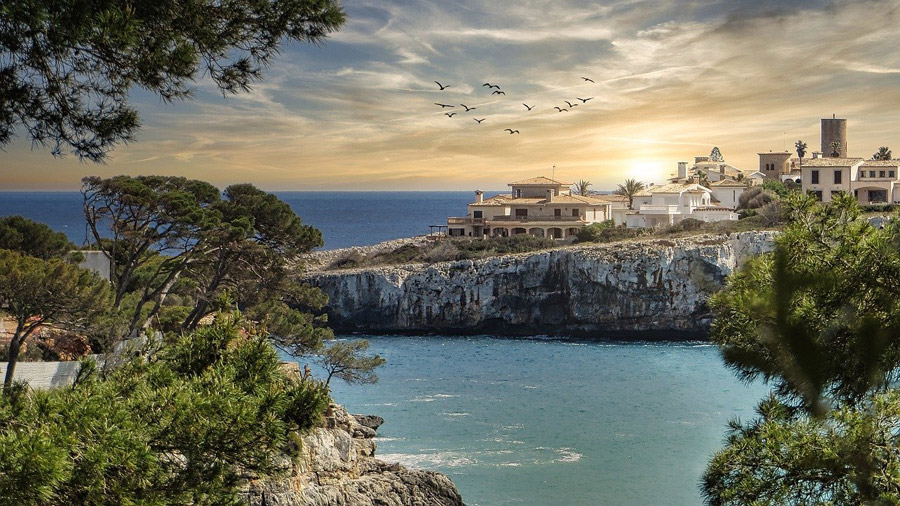
The Spanish language has a rich and fascinating history that has evolved over centuries.
Its origins can be traced back to Latin (like French, Italian and Portuguese), with significant influences from the Roman Empire.
As time passed, Vulgar Latin transformed into what is now known as Castilian Spanish, with the Iberian Peninsula playing a crucial role.
Spanish also made its mark in the Americas, where it developed differently across regions.
The language underwent standardization with the help of the Royal Spanish Academy, while also incorporating Arabic influences from the time of Muslim rule, who were in the Iberian Peninsula for almost eight centuries (from 711 to 1492)
Today, Spanish has become a global language, with widespread usage and official status in many countries.
Origins of the Spanish Language
…
Read entry

Cultural differences are well-recognised: every country does things slightly differently, although they may have similarities with others around the world. These differences don’t just stop at eating habits, beliefs, dress codes or family dynamics – they extend out of the home into the world of work too.
In this blog post, we explore the fascinating subject of how interview techniques differ around the globe.
Skills and competencies vs motivations and values
In Western culture, there is a large emphasis on skills and competencies when it comes to interviews. From a practical perspective, this makes sense – your potential employer needs to be confident that you can do the job. Relying on a CV won’t be enough; the interviewer will want to know details about when you’ve put the skills you’ve listed into action.
However, having the right experience and qualifications doesn’t necessarily mean that you’re the best fit for the company. In the Eastern hemisphere, there’s a greater focus on letting the qualifications speak for themselves, and taking the interview time to get to know the candidate. The conversation is more likely to focus on motivations and values, to make sure that the applicant will be a good holistic fit for the team.
Verbal and non-verbal cues
…
Read entry

The English language has evolved over centuries, shaped by a rich and complex history.
Its origins lie with the Germanic peoples of northern Europe, and the language was influenced by Viking invasions and the Norman conquest. Old English reflected the varied origins of the Anglo-Saxon kingdoms, while Middle English saw significant changes in pronunciation and grammar. Early Modern English incorporated loans from Latin and other European languages, and modern English became a dominant global language through British colonization.
Phonological and grammatical changes contribute to its unique character, while regional dialects and accents add diversity.
Origins of the English language
Germanic influence in England
The origins of the English language can be traced back to the influence of Germanic tribes in England. During the Roman Empire, Germanic-inhabited areas of Germania remained independent, and tribes like the Angles, Saxons, and Jutes settled in Britain post the end of Roman rule. This migration led to the establishment of the heptarchy – seven Anglo-Saxon kingdoms that laid the foundation for Proto-English.
…
Read entry
- Categories: Culture, Languages
- 16 Jan 2024
- 0 comments

For some holidaymakers, going abroad is a chance to discover new cultures and learn about their history. Whilst there’s nothing wrong with a good beach holiday, getting out and about and exploring can really help you feel like you’re getting an authentic experience.
Spain is a renowned tourist destination for its sunny weather, picturesque beaches and tasty food. But there is so much more to this diverse country than meets the eye. A cultural holiday in Spain is the perfect way to experience the country’s rich history and traditions. From the Moorish architecture of Granada to the Iglesia de Santa María in Toledo, there are countless sites to explore:
…
Read entry

Mallorca is one of Spain’s Balearic Islands in the Mediterranean Sea. It’s known for sheltered coves, beach resorts, Roman and Moorish remains and limestone mountains. Would you like to know what to do and visit in this excellent destination that receives around 2 million international visitors a year…?
The island capital is Palma de Mallorca, where you can enjoy its vibrant nightlife, or visit the Moorish Almudaina royal palace, the 13th-century Santa María Cathedral, the Bellver Castle, some Roman remains, or the Jewish quarter.
Apart from the capital, there are some amazing places worth visiting, like:
…
Read entry

If you want to study Spanish, what is a better place than the country where this language is from?
And specifically, today we are going to travel to one of the most important cities in Spain, Seville (or Sevilla, in Spanish), the capital of the autonomous community of Andalusia (Andalucía), South of Spain. Keep reading to know why it can be a great idea to do Spanish courses in Seville…
1. Because “Sevilla tiene un color especial“.
The duo of singers “Los del Río”, internationally famous for their song La Macarena, also dedicated a song to their city, that has a special colour! Will it be because of the majesty of their monuments and buildings, the friendliness of their inhabitants, the Guadalquivir river that crosses the city, the almost perennial sun that bathes it, or the art of their folklore? Probably all of it together!

…
Read entry

 Toasting
Toasting
Toasting makes many non-French people sweat cold. It must be said that the rules are many, and sometimes difficult to understand. You don’t drink until you have a toast (this particular point causes British rage – WHAT? Wait until everyone has a drink before attacking their pint?), you have to look at the person with whom you are drinking in the eyes (otherwise, you know the curse!), don’t cross paths, and of course, drink with everyone present. So, 20 minutes after you start drinking, you can finally drink, yay!
…
Read entry

Have you ever considered studying the German language? Here are some reasons why studying German is a good idea!
1- German and English have many things in common.
The West-Germanic language is the mother language of many modern and widely spoken languages, such as English and Dutch. If you are a native English speaker, German will be easy to learn as both languages have a lot of vocabulary in common. Some examples are ‘Good morning’ and ‘Guten Morgen’, ‘football’ and ‘Fussball’ or ‘book’ and ‘Buch’.
If your native language does not have West-Germanic roots, do not worry! There are more reasons why German is one of the most important languages to study.
…
Read entry

You are invited to a well-served Spanish table with us, take a sit, ¡por favor! We should warn you now because these delicious Spanish foods will make your stomach growling.
Spanish cuisine continues to be popular worldwide. Although, the ‘Spanish cuisine’ does not actually exist; each Spanish region has developed its own dishes and unique products. Spanish food culture is different from English food culture. Spanish people eat main courses twice a day and their breakfasts usually contain fruit, sweet food, and black coffee. However, the food culture differs per region.
The Spanish traditional dishes are described as appetising and simple to prepare. Many tourists visit Spain, not just to experience the culture and enjoy its beautiful landscapes, but also to taste some traditional Spanish dishes.
…
Read entry

Acquiring knowledge is considered an art. Language learning by acquiring language skills is assuming more important in learning. Motivation is one of the most important factors in determining successful second-language acquisition so we’ve collected ideas that will help you on your journey to learn a language and find your motivation.
…
Read entry
Hola People » Culture









 Toasting
Toasting

